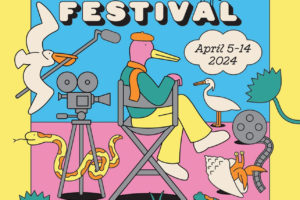Written by Haitian Artist Theresa Sophia.
I have been spending the past several months in the cities of Boston and Harlem talking to people. Yes, talking to people. I visit some of the toughest neighborhoods in America with a lovely sign that reads “How are you doing? What’s on your mind? Talk to me.”
My intention for doing so is to give people, primarily black people and other people of color an outlet to express themselves. An outlet to vent, an outlet to talk about feelings, an informal therapy session if you will. And the response has been phenomenal.
People have really gravitated toward the opportunity to fully verbally express themselves on their choice topic. They have left our conversations feeling better than when they came and that is my only goal each time.
We live in a society where it is very rare that anyone let alone a stranger gives you the opportunity to freely express yourself, with non-bias attentive ears. We live in a society that makes this even more rare for African Americans, who tend to have negative connotations of therapy and seeking help outside of religious practices. And even more so for the black male who must appear as if he has no emotions whatsoever. These stigmas uncoincidentally relate to our mental health and our ability to navigate and cope with it, for example “adult Black/African Americans are more likely to have feelings of sadness, hopelessness, and worthlessness than are adult whites,” (1).
By literally meeting people where they are on the street, looking like them and sharing my own struggles and everyday battles I am creating a space where we can normalize the expression of feelings, offer space for people to express without judgment and begin the conversation of addressing mental health issues in our community.
Black people in particular are suffering from intense traumas that date back centuries. These traumas are then triggered with each police fatality that is reported, then triggered again when justice is not served. Even less overt racism has impacts on stress levels and can lead to a series of different chronic disease. Slavery, Jim Crow, mass incarceration and racism all have played a role in dismantling the black psychi.
Post traumatic stress disorder is very real to many individuals I have spoken to. In fact, “Black/African Americans of all ages are more likely to be victims of serious violent crime than are non-Hispanic whites, making them more likely to meet the diagnostic criteria for post-traumatic stress disorder (PTSD).
Black/African Americans are also twice as likely as non-Hispanic whites to be diagnosed with schizophrenia.”(2) In order to build a robust black population that can fight structural racism through individual progress we must address the big fat elephant in the room, mental health.
I want to show the world what we feel is important and that more outlets need to be provided for us to express our feelings and to normalize these sorts of conversations. I have hope that this small, simple idea can improve our mental health as a population by ultimately leading to more interventions, policy and overall action.
People who have agreed to be filmed are not only expressing themselves, but are ecstatic that I have given them a platform to do so because far too often they feel like their voices are unheard or not cared about.


















As a physician, native born Haitian who came to the USA in 1961 I have my own “mental health” view on Haitians born and raised in Haiti, Haitian born and raised in the USA and Blacks called African Americans. Those are personal observations. I am no speaking for Blacks in general and I don’t consider myself an elitist or racist. I will start by saying that I am the classic Haitian, meaning a human MUTT. French and Lebanese grand fathers, Black grandmothers, darker looking Dad with a lighter skinned Mom and a sprinkle of about everything, Mayan great grandma, Chinese, Jewish, Polish, you name it and my DNA study proved it. I have no one in the world I could be prejudiced against. I see every Human as part of my extended family. I am dark with coarse hair, well educated (Saint Louis de Gonzague, Ecole de Medecine, medical fellowship at Columbia Presbyterian after my Haitian medical residency. My family is the typical Haitian rainbow, from the darkest who would be called Ni..er in America to the one who could pass as White.
My first experience with racism was when I landed in New York City and had to wait very long for a cab, then when my fellow students at Columbia (all White) decided just by looking at me that I couldn’t be as good as them, until I told the top one that anything he could do I could do better and I proved it. I also was found to have a high IQ and that helped. The IQ negated my Black skin. I became the rara avis the one in a million NEGRO (that was the term in 1961). I realized then and there the burden Blacks born in America (Haitian and others) had to shoulder from day one of their lives. Followed closely in luxury stores, stared at and neglected in White hotels or restaurants, hated on sight in racist Southern States, pulled on the streets and highways by police, addressed to by Whites with disrespect, condescendence etc… And I then realized what a blessing it had been for me to have be born in my poor Haiti. That little Black, forsaken speck of land in the Caribbean had given me a pride, sense of worth and backbone that have allowed me to survive and prosper in America.
But there has been also a psychological price to pay. I look carefully around when I go any place in this country and I know, looking at the eyes of a White what he / she thinks of me. I have developed the Black disease, the “fight or flight syndrome”. Wherever I go, whatever I do I am never 100% relaxed. Am I welcome here, am I going to be insulted ? What do I do ? Do I fight, creating an uncomfortable scene, with police getting involved (of course on the White side) or do I flight meekly exiting with my tail between my legs ? Most adult Blacks living in America have high blood pressure, me included, and I think this syndrome is the reason. Stress, arterial tightening hormones, flooding our brain… hours, days, years of our living in White America land. There is no history of high blood pressure in my Haitian family still living in Haiti. Is that what American racism does to Blacks born or just living in America ? I don’t know but I strongly think so. There is also the sense of lower self worth. My Haitian upbringing fortunately protected me against that most of the time but I remember starting surgical practice in a mostly White community in Upstate NY and having a practice 100% White while the local Blacks went to the 20 or so White surgeons in the area. The only person who refused my care over 30 plus years of practice was an African American lady referred to me by a White Ob-Gyn doctor. She told me point blank : “I want a White doctor”.
Every day of my life I thank the Lord for having been born in Haiti. I see second generation Haitian Americans who have never experienced the Haitian culture, the “BELONGING” atmosphere of our little island and I see the African American ways catching up to them and I shudder. If I were not 84 years old, particularly the way America is shaping up these days I would be back in my native land in the blink of an eye. I worry about the mental state of all Blacks born and raised in this country and if we don’t hang on the old ways, the old traditions, Haitian Americans are in for a rude awakening.